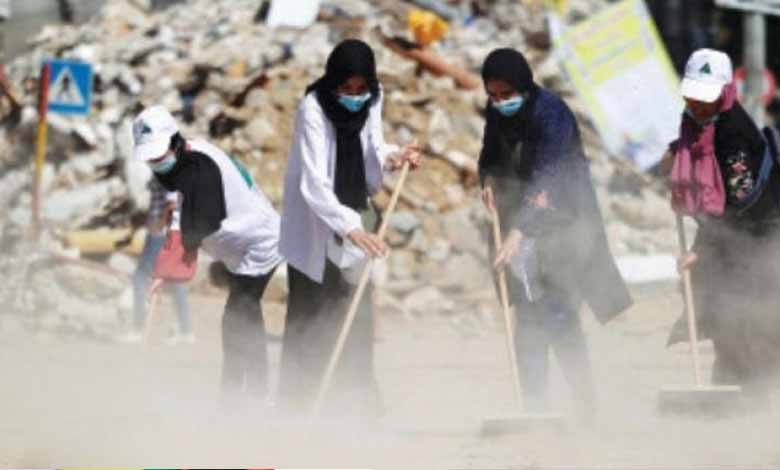Gaza conflict creates new sense of Palestinian unity

The latest escalation within the Middle East conflict served to unite the geographically fragmented Palestinian community during a way not seen in years, analysts say.
From the blockaded Gaza Strip to the occupied West Bank and annexed East Jerusalem to Arab-Israelis living inside the Jewish state, scattered people pulled closer together.
A sea of Palestinian flags flew in solidarity rallies, especially during “Day of Rage” protests and a general strike on May 18 that cut across separate areas, AFP reported.
Administrative offices, schools and businesses closed across the West Bank not only to protest the bombardment of Gaza but also against expanding Jewish settlements within the occupied territories.
“To see every single Palestinian community get up together, this is often extremely rare,” said Salem Barahmeh, director of the Palestine Institute for Public Diplomacy.
“To continue a national strike and protest and to possess the Palestinian diaspora also involved, that’s pretty historic,” he said, pertaining to rallies by Palestinians abroad.
An Arab-Israeli, Mussa Hassuna, was killed during a confrontation between Jewish nationalists and young Arabs in Lod, in central Israel. Israeli Arabs are the descendants of Palestinians who stayed on their land after the creation of Israel in 1948.
The fragmentation has long served to “ensure that there’s no full Palestinian engagement geographically, socially and politically,” said Barahmeh, who is predicated in Ramallah within the West Bank .
While Gaza is mired in poverty, the West Bank after successive intifadas (uprisings) has seen liberal economic policies and therefore the emergence of a bourgeoisie that sometimes seems less politically engaged, he said.
Arab-Israelis, a minority of about 20 percent in Israel, meanwhile face their own unique challenges, said Amal Jamal, politics professor at Tel Aviv University.
“Palestinians in Israel are realistic, they need been living with Jews for many years , they understand the Israeli psyche, politics, culture, they speak Hebrew fluently,” he said.
“Palestinians in Israel are fighting for his or her legitimacy, to be a part of the form of government , a part of the choice making, so as to steer to an answer to the Palestinian problem.”
Mariam Barghouti, a researcher and Palestinian activist, said that within the wider community “each person features a different experience with the Israeli state which creates isolation for various communities.
“It breaks the power to relate to every other and our experiences.”
But amid the recent surge in violence, Barghouti said, Arab-Israelis found themselves confronted by “people shouting ‘death to Arabs’ and attacking Palestinians with weapons.”
They realized that “it’s not just a West Bank problem, not just a Gaza problem,” said Barghouti. “It is an apartheid problem, a colonial problem, it’s an Israeli state problem.”
The US-based group Human Rights Watch and Israel’s B’Tselem recently accused Israel of running an “apartheid” system — a charge strongly rejected by the Jewish state.
Jamal also said that the recent flare-up “made everybody feel how Palestinian they’re . But there’s an enormous difference between the sentiment and therefore the political will or ideology .”
Palestinians are politically divided between Hamas and its rival Fatah, which has seen splinter groups emerge.
Palestinian President Mahmoud Abbas of Fatah had recently called the primary Palestinian elections in 15 years this year.
But he then indefinitely postponed the polls, blaming voting restrictions in annexed East Jerusalem, which led Hamas to accuse Abbas of perpetrating a “coup.”
Despite those divisions, a way of common Palestinian identity has been strengthened, said Barahmeh.
“You see people beginning together during a unified manner, speaking an equivalent language … protesting an equivalent system, projecting an equivalent identity,” he said.
“Everything we see tells us that there’s a sort of unity. Is it fully formed? No … But i feel it’s the beginning of something.”












